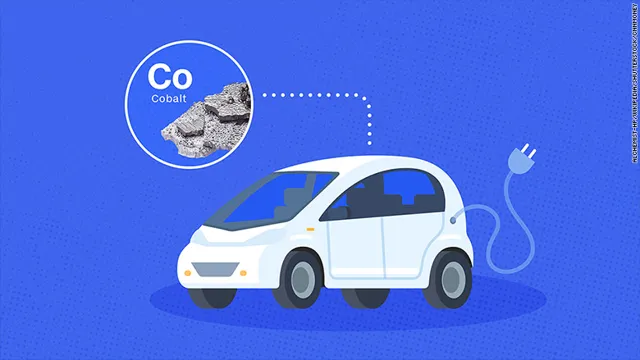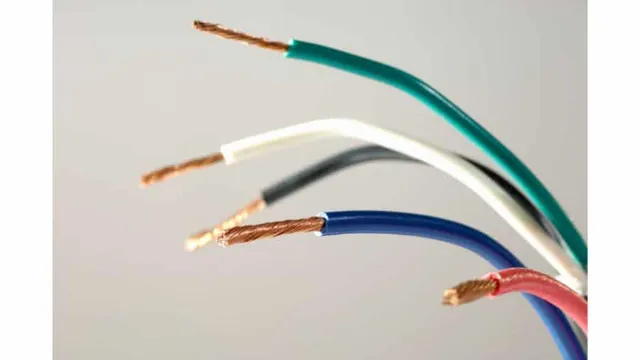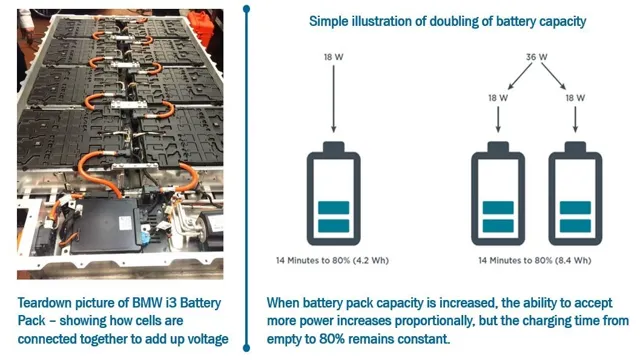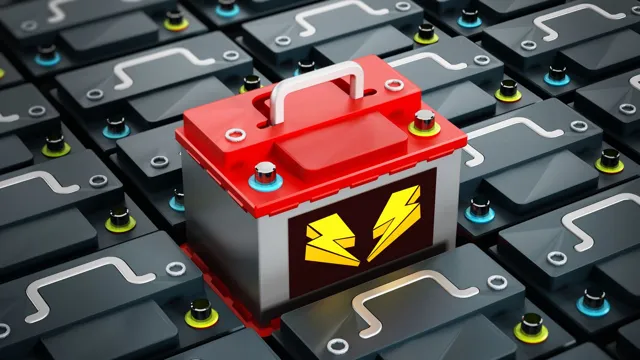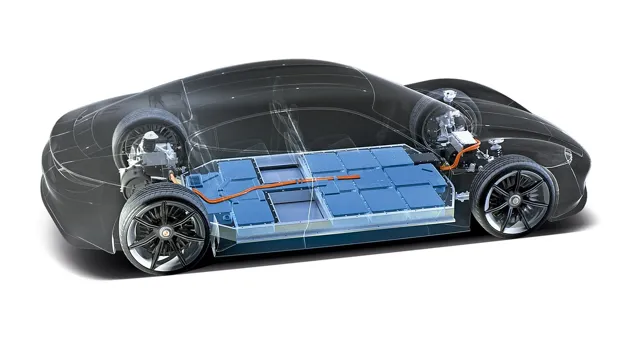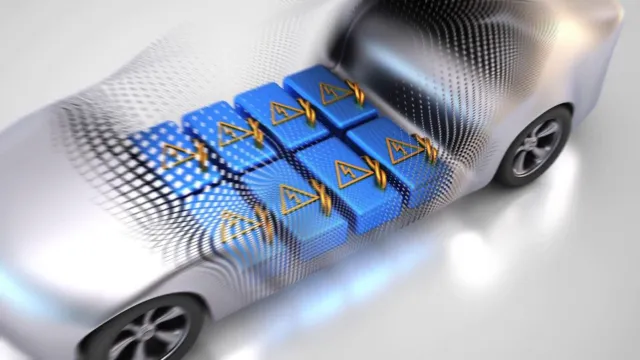The Shocking Truth About Electric Car Battery Cobalt Usage in Kilograms – Explained!
Electric cars have been hailed as a cleaner and more sustainable future for transportation. But behind the scenes, the key component in these vehicles, the battery, holds a controversial material – cobalt. This essential element plays a crucial role in the performance and endurance of electric car batteries.
However, the mining and production of cobalt have negative environmental and social impacts. This raises the question; how much cobalt is too much? Are we compromising sustainability for performance? In this blog, we’ll explore the usage of cobalt in electric car batteries, its impact on the environment, and alternative solutions for a more sustainable future.
What is Cobalt and Why is it Used in Electric Car Batteries?
Cobalt is a metal that has become increasingly important in electric car batteries. This is because cobalt offers a high energy density, which allows the battery to store more energy and thus provide more power. However, there is a downside to this increased usage of cobalt in electric car batteries: it is a relatively rare and expensive metal, and most of the world’s cobalt comes from countries with unstable political situations.
As a result, some are concerned that this reliance on cobalt could lead to supply chain disruptions and higher prices for electric car batteries. Additionally, the production of cobalt can be environmentally damaging, and many are calling for more sustainable practices in the mining and processing of this metal. Despite these challenges, however, cobalt remains a crucial component in the electric car battery industry, and researchers are exploring ways to reduce its usage while maintaining battery performance.
The Properties of Cobalt that Make it Ideal for Batteries
Cobalt is a chemical element that is widely used in electric car batteries due to its unique properties. It is a hard, lustrous metal that is found naturally in the Earth’s crust, mostly in association with other metals like nickel and copper. One of the main reasons why cobalt is ideal for batteries is its ability to store and release energy efficiently.
When combined with other materials like lithium, cobalt forms a stable cathode that can withstand repeated charging and discharging cycles. This makes it an essential component of high-performance batteries used in electric vehicles. Another advantage of cobalt is its resistance to corrosion, which enhances the durability and lifespan of the batteries.
However, the mining and processing of cobalt can be environmentally and socially impactful. Therefore, it is important to ensure responsible sourcing and recycling of cobalt to minimize its negative effects on people and the planet.
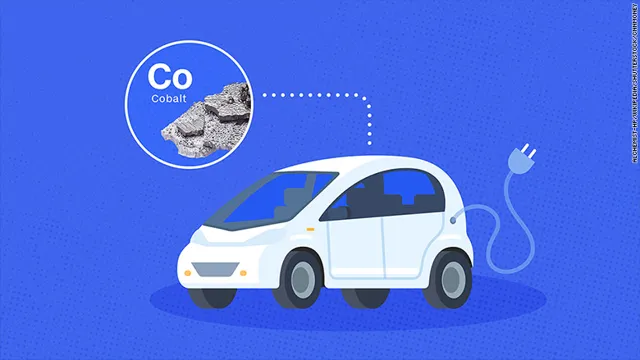
The Pros and Cons of Using Cobalt in EV Batteries
Cobalt is a metal that is often used in electric car batteries because of its ability to promote stability and safety while also enhancing the battery’s performance. Cobalt provides thermal stability to EV batteries, which means they can operate at higher temperatures without degrading or failing. In addition, cobalt also increases energy density, allowing the battery to store more energy.
However, despite its benefits, there are some drawbacks to using cobalt in electric car batteries. Cobalt is a rare and expensive metal, so using large amounts of it can lead to a higher cost of production, which can drive up the price of electric cars. Furthermore, since cobalt is often sourced from conflict-prone regions, there are concerns about the ethical and environmental implications of its use.
Overall, while cobalt can improve the performance of EV batteries, it is important to consider the trade-offs and look for alternatives that can provide similar benefits without the negative impacts.
How Much Cobalt is Used in Electric Car Batteries?
When it comes to electric car batteries, cobalt is an essential element. It’s a key component in the cathodes of most lithium-ion batteries, which are used in electric vehicles. Although manufacturers are working on ways to reduce or eliminate the need for cobalt, it’s still widely used in electric car batteries today.
The amount of cobalt used in a typical electric car battery varies depending on the battery’s size and the manufacturer. On average, an electric car battery contains around 10 kg of cobalt. However, some batteries can contain much more.
For example, Tesla’s Model S and Model X batteries contain around 22 kg of cobalt, while the Model 3 battery contains around 5 kg. Despite the amount of cobalt used in electric car batteries, it’s important to remember that as battery technology continues to evolve, we may see the use of cobalt decrease over time.
Average Cobalt Usage in Different Electric Car Models
Cobalt Usage in Electric Car Batteries If you’re considering buying an electric car, you may be wondering how much cobalt is used in their batteries. Cobalt is a crucial element in the production of lithium-ion batteries used in electric cars. The average cobalt use in electric car batteries varies depending on the car model.
For example, the Nissan Leaf and BMW i3 are among the lowest users of cobalt at approximately 5 kilograms per car, while the Tesla Model S and Chevrolet Bolt use around 11 kilograms of cobalt per car. This variance is due to the differences in the battery cell technology between the different car models.
It’s important to note that while cobalt usage in electric car batteries is substantial, it’s still an infinitesimal amount compared to the total amount of cobalt that is produced. Cobalt is a relatively rare and expensive element, and the ethical sourcing of cobalt has become a hot-button issue in recent years due to its prevalence in countries with poor human rights records. Therefore, it’s crucial that car manufacturers make efforts in ensuring the ethical sourcing of cobalt in their production process.
Overall, while cobalt plays a critical role in the production of electric car batteries, its usage is relatively small compared to the overall impact electric cars can have on reducing carbon emissions.
How Cobalt Usage in EV Batteries is Changing Over Time
Cobalt usage in EV batteries has been a topic of concern in recent years. Cobalt is one of the essential materials used in the production of lithium-ion batteries that power electric vehicles. However, it’s a relatively scarce resource, primarily sourced from the Democratic Republic of Congo, where ethical concerns arise.
Manufacturers have been working to reduce cobalt usage in their batteries or eliminate it altogether due to its high cost and ethical concerns. The good news is that cobalt usage in EV batteries has significantly reduced over the years. Initially, EV batteries contained about 20% cobalt, but innovative technology has seen a reduction of cobalt usage to as low as
5%. As technology advances, it’s expected that cobalt usage will continue to decline, and usage of alternatives like nickel and manganese will increase.
The Impact of Cobalt Shortages on the Electric Car Industry
Cobalt shortages are having a significant impact on the electric car industry since this material is a crucial component of electric car batteries. In fact, electric car batteries typically require several kilograms of cobalt to function correctly, not to mention several other minerals that go into the battery’s production. Cobalt is of such importance that its price has soared in recent years since electric cars are becoming more popular.
The scarcity of cobalt has led car manufacturers to search for alternative minerals, such as nickel or aluminum, to use in their electric car batteries. However, these minerals are not as effective at storing energy as cobalt, which means that manufacturers may have to reduce the overall performance of their electric cars. Nevertheless, with new technological developments and further investment in research, we may hopefully find alternatives that can eventually replace cobalt and sustain the growth of the electric car industry.
Alternatives to Cobalt in Electric Car Batteries
Electric car batteries have gained momentum in recent years as we seek to reduce our carbon footprint and transition towards sustainable energy alternatives. However, cobalt, a critical component of most electric car batteries, poses a significant environmental and ethical concern due to its mining practices and human rights violations in countries like the Democratic Republic of Congo. Therefore, researchers are exploring alternatives to cobalt, such as nickel, manganese, and lithium.
While these alternatives have their own limitations, such as reduced energy density and increased thermal instability, efforts are underway to optimize their performance. For instance, researchers at MIT have developed a new cathode material that utilizes iron phosphate instead of cobalt, offering comparable performance and stability. By reducing our reliance on cobalt, we can pave the way for more sustainable and ethical electric vehicle production in the future.
The Advantages and Limitations of Different Cobalt Alternatives
Cobalt has long been an essential component of electric car batteries, but due to its cost and geopolitical risks associated with sourcing it, many companies are exploring alternatives. One promising alternative is nickel-manganese-cobalt (NMC) batteries, which have a higher energy density and longer lifespan than traditional cobalt-based batteries. However, NMC batteries still contain a significant amount of cobalt, and their production can still contribute to environmental and social concerns.
Another option is lithium-iron-phosphate (LFP) batteries, which are cheaper and more environmentally friendly, but have lower energy density and can be less suitable for high-performance applications. Ultimately, each alternative has its advantages and limitations, and the choice will depend on the specific use case and priorities of the user.
The Potential Future of Cobalt-Free Electric Car Batteries
As electric cars continue to grow in popularity, so does the need for more efficient and sustainable battery technologies. While cobalt has been a common component in electric car batteries for years, recent concerns over the ethics of mining the metal and its potential shortage have led to the search for cobalt-free alternatives. Some promising options include nickel-cobalt-aluminum cathodes, solid-state batteries, and lithium-iron-phosphate batteries.
These alternatives not only reduce the dependence on cobalt but also offer benefits such as longer battery life, higher power density, and reduced risk of thermal runaway. While these alternatives may not be as widely available as cobalt-based batteries just yet, they show great potential for the future of electric car batteries that are both sustainable and efficient.
Conclusion: Balancing Performance and Ethics in Electric Car Battery Design.
In conclusion, the use of cobalt in electric car batteries may seem insignificant at first glance, with the average vehicle only requiring about 10 kg. However, this understates the vital role this metallic element plays in sustaining the electric revolution. Without cobalt, we would not be able to unlock the full potential of electric vehicles, which offer a cleaner, more sustainable mode of transportation.
So next time you zoom past a gas station in your electric car, remember to thank cobalt for keeping you on the road.”
FAQs
What is the average amount of cobalt used in an electric car battery?
The average amount of cobalt used in an electric car battery is around 10 to 20 kilograms.
Why is cobalt used in electric car batteries?
Cobalt is used in electric car batteries because it improves the performance and lifespan of the battery.
Is there a way to reduce the amount of cobalt used in electric car batteries?
Yes, there are efforts to reduce the amount of cobalt used in electric car batteries by using alternative materials such as nickel and manganese.
How does the usage of cobalt in electric car batteries affect the environment?
The mining and extraction of cobalt can have negative environmental impacts, but efforts are being made to ensure responsible sourcing and recycling of cobalt.
